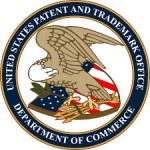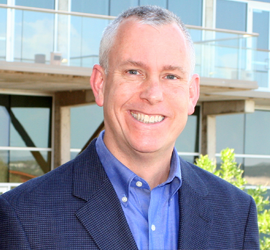In a recent opinion, the US Circuit Court of Appeals for the Fourth Circuit held that the provisions of the Lanham (Trademark) Act permitting appeal of ex parte decisions of the Trademark Trial and Appeal Board to a federal district court require the appealing trademark owner to pay the USPTO’s attorneys’ fees and costs—even if the mark owner is ultimately successful in reversing the Board’s decision.
Under t he Lanham Act, if a trademark owner applies to register a mark with the US Patent and Trademark Office (“PTO”), that application is reviewed by an examining attorney at the PTO. If the examining attorney refuses registration for any reason (often, though not exclusively, because the mark sought to be registered is considered confusingly similar to an already-registered mark), the mark owner can appeal that decision to the PTO’s Trademark Trial and Appeal Board. If the Board also refuses to permit the registration, the applicant has two choices: it can appeal to the US Court of Appeals for the Federal Circuit, or it can appeal to a US District (trial) Court. Appeals to the Federal Circuit are decided based solely on the record of proceedings before the Board, but an appeal to a federal district court enables the mark owner to submit new evidence (such as testimony by an expert witness) that was not considered by the USPTO in the prior proceeding.
he Lanham Act, if a trademark owner applies to register a mark with the US Patent and Trademark Office (“PTO”), that application is reviewed by an examining attorney at the PTO. If the examining attorney refuses registration for any reason (often, though not exclusively, because the mark sought to be registered is considered confusingly similar to an already-registered mark), the mark owner can appeal that decision to the PTO’s Trademark Trial and Appeal Board. If the Board also refuses to permit the registration, the applicant has two choices: it can appeal to the US Court of Appeals for the Federal Circuit, or it can appeal to a US District (trial) Court. Appeals to the Federal Circuit are decided based solely on the record of proceedings before the Board, but an appeal to a federal district court enables the mark owner to submit new evidence (such as testimony by an expert witness) that was not considered by the USPTO in the prior proceeding.
Given the opportunity to expand the record and submit new evidence, filing the appeal with the District Court would seem to be a logical choice for mark owners determined to obtain a registration for their mark. Even if the mark owner loses, there is still a chance for additional appellate review. In Shammas v. Focarina (U.S. Ct. of Appeals, 4th Cir., Case No. 14-1191, April 23, 2015), however, the 4th Circuit added a new wrinkle, construing 15 USC § 1071(b)(3) of the Lanham Act to require mark owners to pay the PTO’s attorneys’ fees, even if the mark owner wins its case.
Shammas filed a trademark application in 2009 for the mark PROBIOTIC. The PTO examining attorney rejected the application, finding that the mark was simply a generic term. Shammas appealed to the Trademark Trial and Appeal Board, and the Board affirmed. Shammas then filed an appeal to the US District Court for the Eastern District of Virginia, but the trial court granted summary judgment to the PTO, finding that Shammas had not introduced any evidence to cast doubt on the PTO’s finding that PROBIOTIC was generic. Then, apparently for the first time in a case of this type, the PTO filed a motion for attorneys’ fees, relying upon language in Section 1073(b)(3) requiring the mark owner to pay “all the expenses of the proceeding, whether he succeeds in the action or not,” “unless the expenses are unreasonable.” The trial court, finding that the term “expenses” includes attorneys’ fees, ordered Shammas to reimburse the PTO for over $32,000 in attorneys’ fees and $3,000 in paralegal fees.
On appeal, the Fourth Circuit affirmed the trial court. The court rejected the idea that this was a “fee-shifting” provision, because unlike a traditional fee shifting provision, the statute provided for payment of expenses regardless of the outcome of the proceeding.
As the dissent noted, this appears to be the first time the PTO has requested that a mark owner pay attorneys’ fees for cases appealed to the district court. However, trademark owners wishing to obtain a trademark registration will now have to consider that appeals to the District Court, although offering the opportunity to present additional evidence, will now potentially be much more expensive, even if they win.

Kevin Grierson is admitted to practice before the United States Patent and Trademark Office and maintains a national practice focused on trademark prosecution, software licensing and patent and trademark portfolio management for businesses ranging from hi-tech startups to established Fortune 500 companies.He assists clients in all aspects of intellectual property law, including patent and trademark prosecution, infringement analysis, domain name cybersquatting issues, and all forms of intellectual property licensing.






